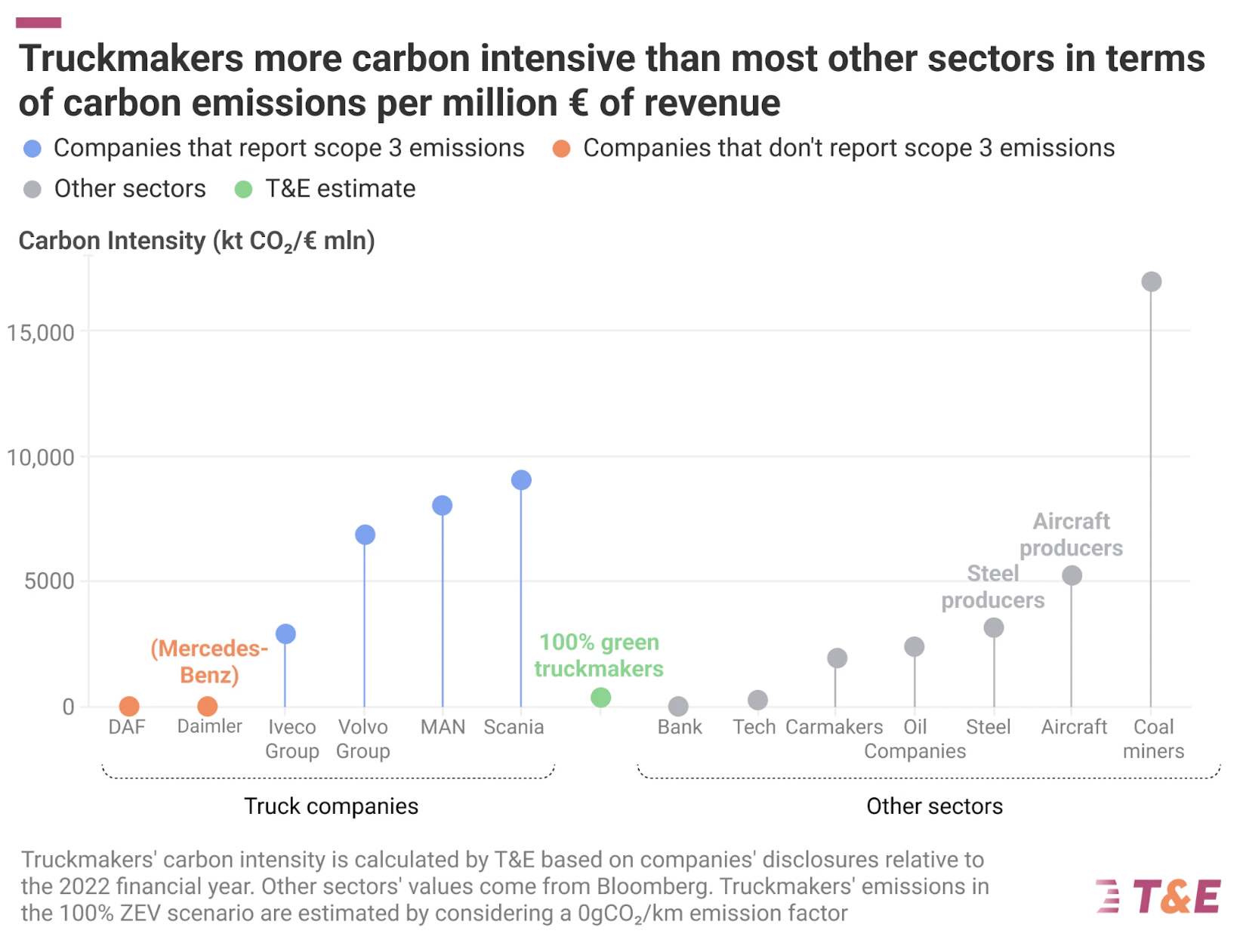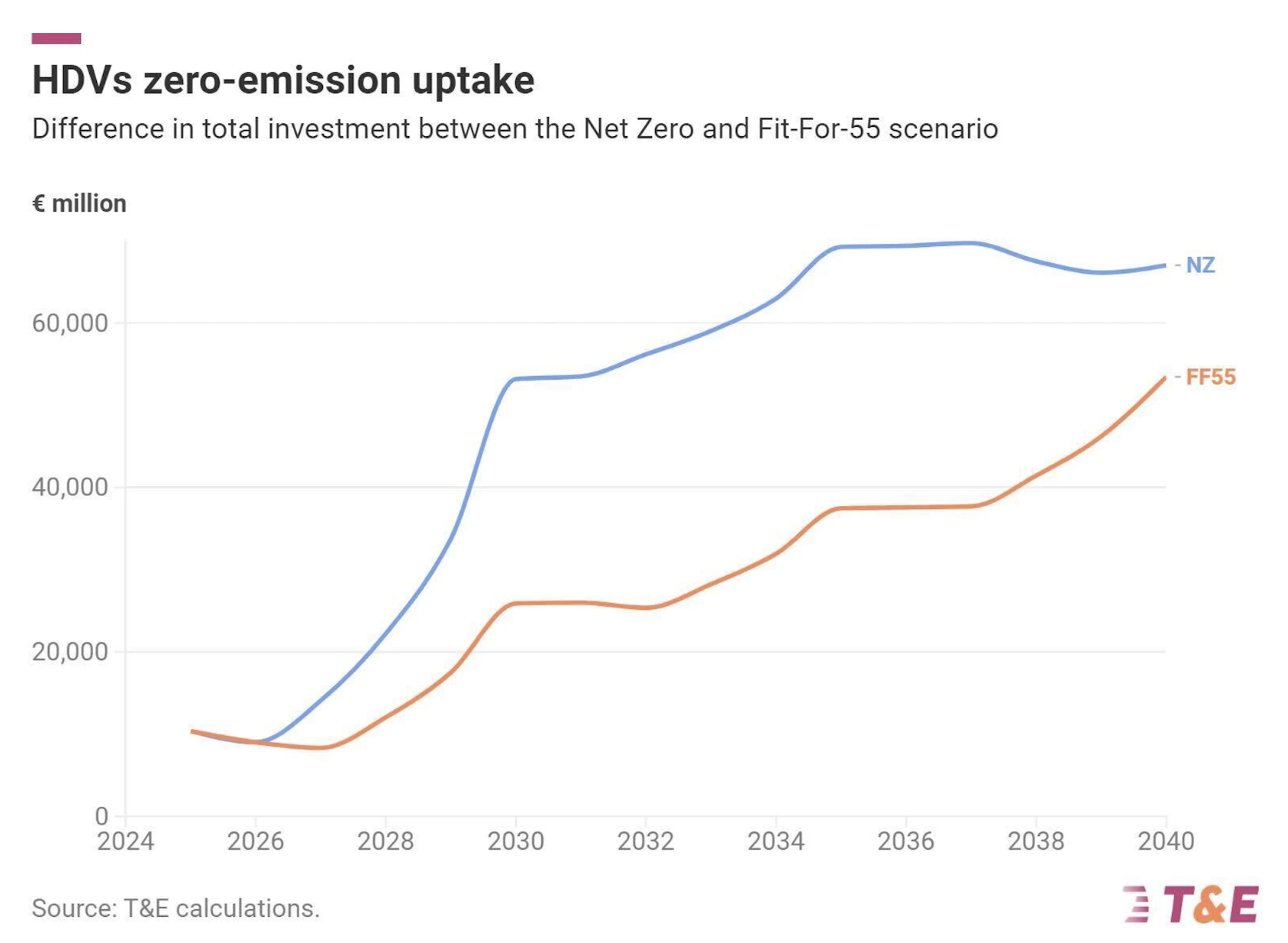
Sign up for daily news updates from CleanTechnica on email. Or follow us on Google News!
T&E’s Giorgia Ranzato explains how financial instruments can be used to clean up one of Europe’s dirtiest industries
The transport sector is Europe’s largest contributor to GHG emissions and the major player in driving climate change. Unlike other industries, emissions from transportation are still on the rise and over 75% of these emissions come from land transport, and are due to combustion engines’ use.
Trucks and buses make up just 2% of all road vehicles, but they’re responsible for 27% of the EU’s climate road transport emissions. To put it into perspective, if trucks and buses were an EU country, they’d rank as the EU’s 6th largest carbon emitter. Shocking, right?
In a previous study, we translated these figures into financial terms using a key metric for investors: carbon intensity. We found out that truckmakers are currently more carbon intensive than most other sectors in terms of carbon emissions per million euros of revenue.
How do we fix this?
The new European law to clean up CO2 emissions from heavy-duty vehicles (HDVs) was approved in April last year and should play its part. It mandates truck and busmakers to sell an increasing share of zero-emission vehicles starting from 2025, crowding out the space for diesel sales until a near phase-out in 2040. This offers an immense opportunity for truckmakers to clean up their CO2 emissions, and to continue to attract private capital. These new HDV CO2 standards alone are expected to cut truckmakers’ emissions (scope 1, 2 and 3) by 29% already in 2030.
But beyond legislation, financial instruments shall also pull their weight.
According to our findings published in November last year, €783 billion investments are needed by 2040 to decarbonise the heavy-duty fleet completely by 2050. These figures are based on T&E’s Net-Zero scenario developed to address the shortcomings of the Fit-to-55 scenario, which is insufficient to achieve net-zero emissions in several transport sectors, including road transport, by 2050.
This is not only fresh money that is needed: the largest share of these needs will be covered by manufacturers switching from diesel to e-trucks production. But achieving this ambitious goal will take an all-hands-on-deck effort, fueled by a powerful blend of public and private funding.
The bulk of the investment must be mobilised at the private sector level. Truckmakers and freight operators will need to adapt their business strategies to keep up with the transition. Instruments like residual value guarantees, acting as safety nets to cover the residual value risks for operators, will be essential to encourage investments in green vehicles.
On the other hand, the public sector, including public banks like the European Investment Bank (EIB), has undoubtedly a major role to play in ensuring that innovative financial solutions are made available for the market to transition to ZEVs. To accelerate the uptake of clean vehicles, affordable loans and guarantees should be prioritised to enable small companies to buy ZEVs therefore amortising the initial cost to buy a zero-emission truck. The road haulage industry is mainly made up of SMEs that do not yet have the access to capital for higher upfront purchase costs.
In the race to tackle climate change, the electrification of road freight offers both a significant challenge and a vital opportunity. Heavy-duty vehicles play a disproportionate role in emissions, but with the right mix of ambitious legislation, effective financial instruments and collaborative efforts between the trucking industry and the investor community this sector can transition towards a cleaner, more sustainable future.
By Giorgia Ranzato, Sustainable Finance Manager Brussels (EU). First published on T&E website.
Chip in a few dollars a month to help support independent cleantech coverage that helps to accelerate the cleantech revolution!
Have a tip for CleanTechnica? Want to advertise? Want to suggest a guest for our CleanTech Talk podcast? Contact us here.
Sign up for our daily newsletter for 15 new cleantech stories a day. Or sign up for our weekly one if daily is too frequent.
CleanTechnica uses affiliate links. See our policy here.
CleanTechnica’s Comment Policy






